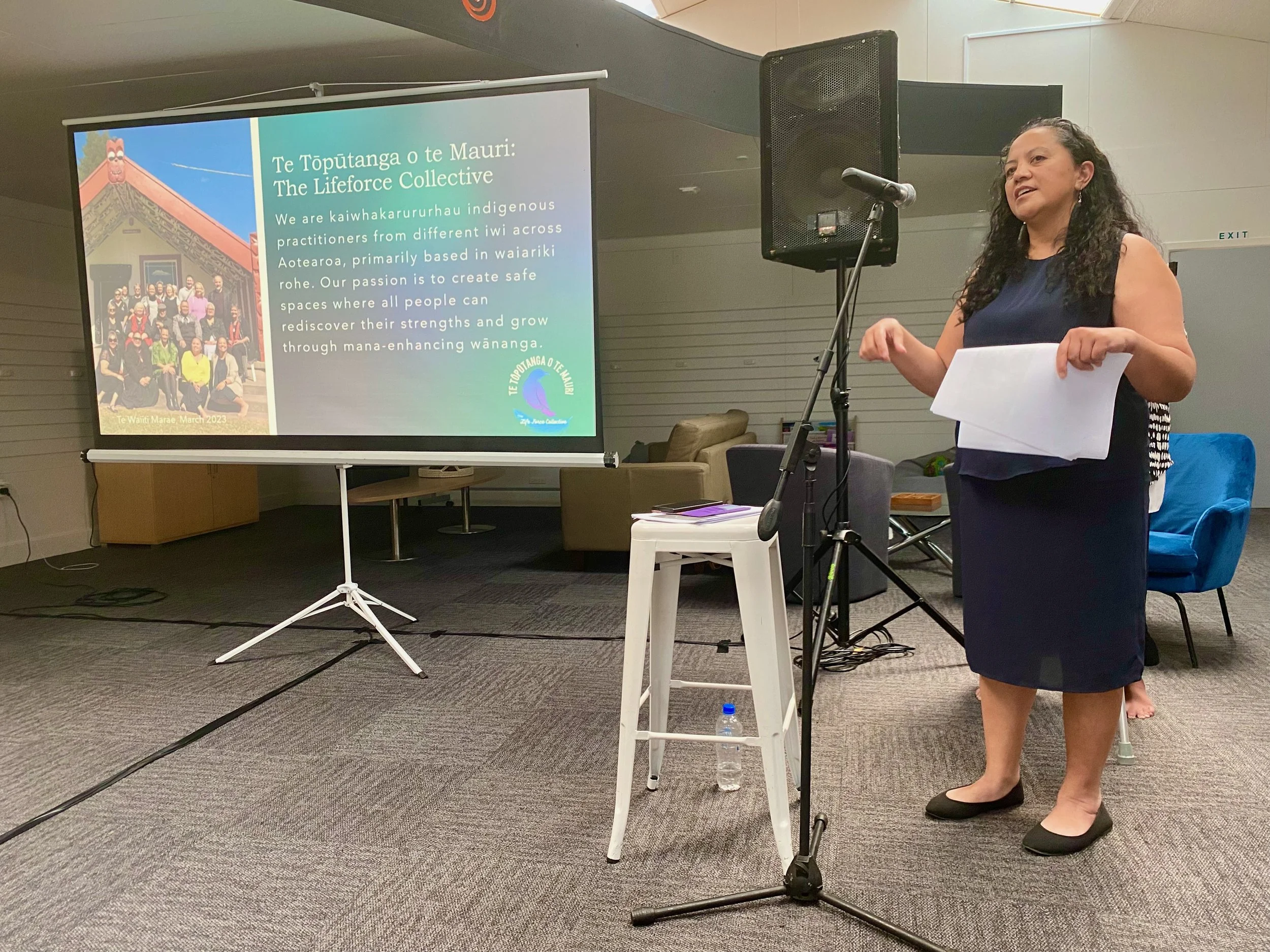New whānau stories
As part of our HRC funded Te Whakahekenga study we worked within the Bay of Plenty, talking to whānau and community providers living and working in rural areas which experience high levels of economic deprivation. They told us how whānau have a significant role in caregiving at end of life but the support they received from healthcare services varied widely and depended very much on where they lived. Living in rural isolated areas impacted greatly on people’s ability to care for whānau at end of life. Whānau talked about the care they experienced negative interactions with healthcare providers.
Using the findings we have extended Te Whare Tapa Whā with Tā Mason Durie’s permission to introduce He Tapu te Tangata: the sacred person. He Tapu te Tangata is both a taonga tuku iho (intergenerational gift) and a guide for health care professionals working with communities experiencing different types of deprivation. This model acknowledges the need for HCP’s to engage with whānau in a trauma informed way including at the end of life. We are grateful to three whānau participants who shared their experiences and insights in these films.
Links to the whānau participant stories:
The Herewini (Selwyn) Whānau Story
We are also excited to be producing a podcasts series to be released early next year, describing our behind-the-scenes stories for this project.
Stella Black, who led the project with Jackie Robinson, presenting findings back to the community

